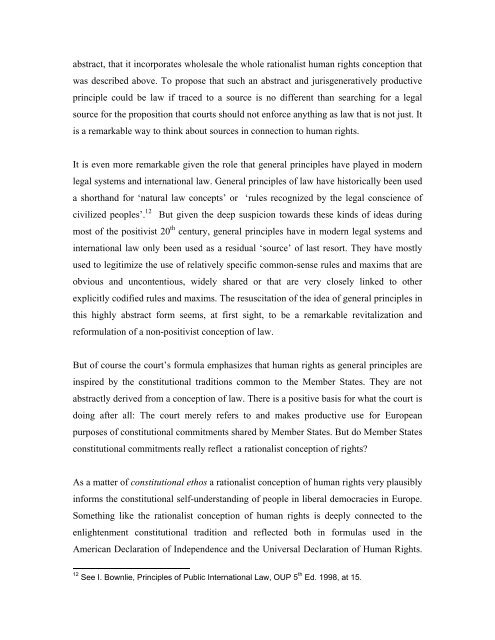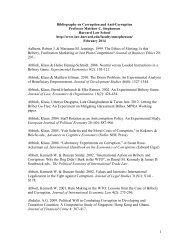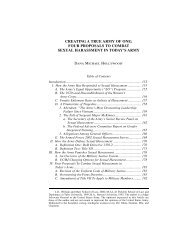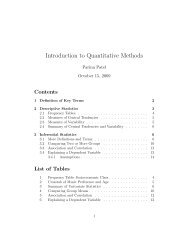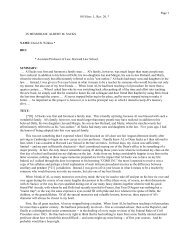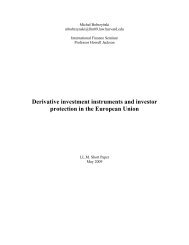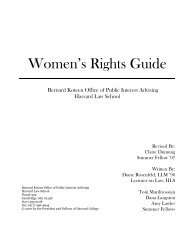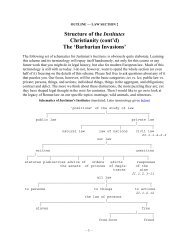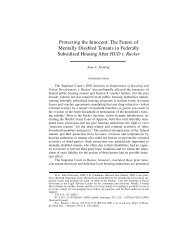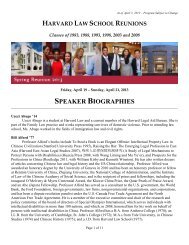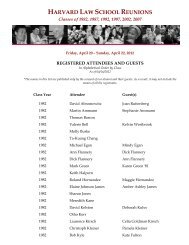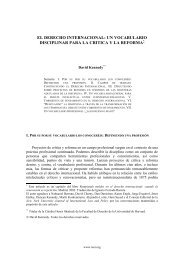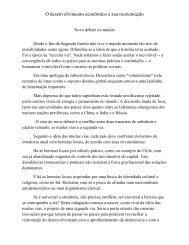Internationale Handelsgesellschaft, Nold and the New Human ...
Internationale Handelsgesellschaft, Nold and the New Human ...
Internationale Handelsgesellschaft, Nold and the New Human ...
Create successful ePaper yourself
Turn your PDF publications into a flip-book with our unique Google optimized e-Paper software.
abstract, that it incorporates wholesale <strong>the</strong> whole rationalist human rights conception that<br />
was described above. To propose that such an abstract <strong>and</strong> jurisgeneratively productive<br />
principle could be law if traced to a source is no different than searching for a legal<br />
source for <strong>the</strong> proposition that courts should not enforce anything as law that is not just. It<br />
is a remarkable way to think about sources in connection to human rights.<br />
It is even more remarkable given <strong>the</strong> role that general principles have played in modern<br />
legal systems <strong>and</strong> international law. General principles of law have historically been used<br />
a shorth<strong>and</strong> for ‘natural law concepts’ or ‘rules recognized by <strong>the</strong> legal conscience of<br />
civilized peoples’. 12 But given <strong>the</strong> deep suspicion towards <strong>the</strong>se kinds of ideas during<br />
most of <strong>the</strong> positivist 20 th century, general principles have in modern legal systems <strong>and</strong><br />
international law only been used as a residual ‘source’ of last resort. They have mostly<br />
used to legitimize <strong>the</strong> use of relatively specific common-sense rules <strong>and</strong> maxims that are<br />
obvious <strong>and</strong> uncontentious, widely shared or that are very closely linked to o<strong>the</strong>r<br />
explicitly codified rules <strong>and</strong> maxims. The resuscitation of <strong>the</strong> idea of general principles in<br />
this highly abstract form seems, at first sight, to be a remarkable revitalization <strong>and</strong><br />
reformulation of a non-positivist conception of law.<br />
But of course <strong>the</strong> court’s formula emphasizes that human rights as general principles are<br />
inspired by <strong>the</strong> constitutional traditions common to <strong>the</strong> Member States. They are not<br />
abstractly derived from a conception of law. There is a positive basis for what <strong>the</strong> court is<br />
doing after all: The court merely refers to <strong>and</strong> makes productive use for European<br />
purposes of constitutional commitments shared by Member States. But do Member States<br />
constitutional commitments really reflect a rationalist conception of rights?<br />
As a matter of constitutional ethos a rationalist conception of human rights very plausibly<br />
informs <strong>the</strong> constitutional self-underst<strong>and</strong>ing of people in liberal democracies in Europe.<br />
Something like <strong>the</strong> rationalist conception of human rights is deeply connected to <strong>the</strong><br />
enlightenment constitutional tradition <strong>and</strong> reflected both in formulas used in <strong>the</strong><br />
American Declaration of Independence <strong>and</strong> <strong>the</strong> Universal Declaration of <strong>Human</strong> Rights.<br />
12 See I. Bownlie, Principles of Public International Law, OUP 5 th Ed. 1998, at 15.


